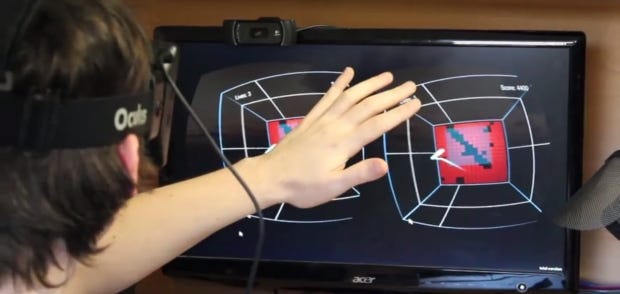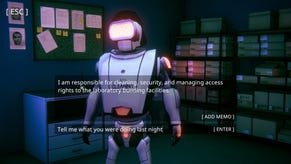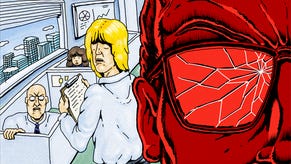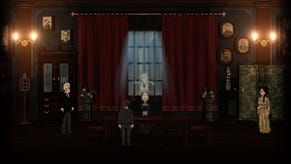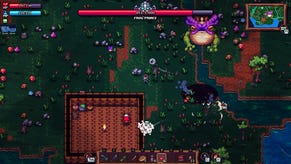All Fun And Games: Diplopia, A VR Game For Treating Eyes
We're still just scratching the surface of what the Oculus Rift can be used for. Diplopia, which has more than doubled its small IndieGoGo funding target with 48 days left to go, is a motion-controlled Oculus Rift game designed to help people with strabismus, also known as cross-eye. As reported by Polygon, it does that by helping re-train people's brain so that it stops ignoring the weaker eye, and thus improves 3D vision.
Come watch the pitch video and see the power of videogames. Also it looks like a pretty fun first-person Breakout clone.
I'm going to quote a chunk from the James Blaha's IndieGoGo page, because it explains the project extremely well.
Strabismus, better known as crossed eye, is present in about 4% of children. In those affected both eyes do not line up properly causing diplopia (double vision), amblyopia (lazy eye), and loss of vision in one or both eyes. Since the brain receives conflicting information from the two eyes it often learns to disregard the weaker of the two, suppressing it. This leads to a loss of depth perception and 3D vision.
It was long thought that once a person's brain had learned to suppress one of their eyes that they could only unlearn this suppression before a "critical age" of between 8 and 12 years old. Only recently has it been shown that certain kinds of therapies (including video games) can actually treat strabismus past adolescence, allowing for the possibility of restoring 3D vision in adults.
Diplopia takes advantage of the wealth of new information in scientific studies that have come out in the past couple of years to create an experience that will effectively train people who have a suppressed eye to use that eye in conjunction with their good one. Evidence shows that with a simple well designed game it only takes 1-2 hours a day for 2-3 weeks for a person to get measurable improvements in their vision.
It aims to re-train your brain by showing a differently coloured image to each eye, forcing your "lazy eye" to focus more in order to play properly.
The game has basically already been made, and the money Blaha was asking for will be used to pay for the Oculus Development Kit and a Unity Pro license. With those targets hit, he's outlined a series of stretch goals for the project, including Razer Hydra support and various expansions to the game mechanics.
If you like the sound of it, take a look at the Diplopia IndieGoGo page.
